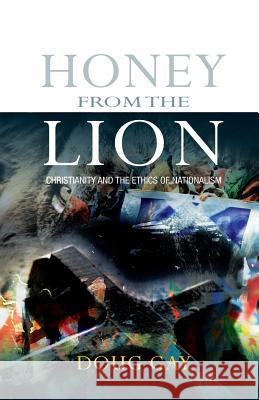Honey from the Lion: Christianity and the Ethics of Nationalism » książka
Honey from the Lion: Christianity and the Ethics of Nationalism
ISBN-13: 9780334046479 / Angielski / Miękka / 2013 / 224 str.
Doug Gay explores the ethics of nationalism, recognising that for many Christians, churches and theologians, nationalism has often been seen as intrinsically unethical due to a presumption that at best it involves privileging one nation's interests over anothers and at worst it amounts to a form of ethnocentrism or even racism. Gay argues that there is another tradition of thinking nationalism, which can be related to state formation in early modern and modern Europe and North America, decolonisation in the 20th C and the reshaping of Central and Eastern Europe post 1989. This tradition represents a political response to various forms of 'empire' and an assertion of a desire for self-determination in opposition to domination by an imperial or colonial power. This trajectory has not yet been adequately recognised within political theology and Christian ethics, which remains suspicious of the language of nationalism, while quietly acquiescing in its acceptance of the political legitimacy of most existing nation-states. The book offers a clear challenge to this approach, suggesting it lacks self-awareness and moral authority and proposes a critical rehabilitation of the discourse of nationalism, as necessary and helpful in relation to creating an honest and transparent discourse about the legitimacy of state boundaries. What makes any nationalism - whether regnant or aspiring - 'ethical' for Christian theology?
Doug Gay explores the ethics of nationalism, recognising that for many Christians, churches and theologians, nationalism has often been seen as intrinsically unethical due to a presumption that at best it involves privileging one nations interests over anothers and at worst it amounts to a form of ethnocentrism or even racism. Gay argues that there is another tradition of thinking nationalism, which can be related to state formation in early modern and modern Europe and North America, decolonisation in the 20th C and the reshaping of Central and Eastern Europe post 1989. This tradition represents a political response to various forms of empire and an assertion of a desire for self-determination in opposition to domination by an imperial or colonial power. This trajectory has not yet been adequately recognised within political theology and Christian ethics, which remains suspicious of the language of nationalism, while quietly acquiescing in its acceptance of the political legitimacy of most existing nation-states. The book offers a clear challenge to this approach, suggesting it lacks self-awareness and moral authority and proposes a critical rehabilitation of the discourse of nationalism, as necessary and helpful in relation to creating an honest and transparent discourse about the legitimacy of state boundaries. What makes any nationalism - whether regnant or aspiring - ethical for Christian theology?











